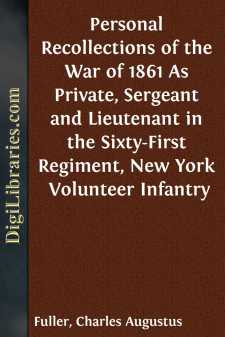Categories
- Antiques & Collectibles 13
- Architecture 36
- Art 48
- Bibles 22
- Biography & Autobiography 813
- Body, Mind & Spirit 142
- Business & Economics 28
- Children's Books 17
- Children's Fiction 14
- Computers 4
- Cooking 94
- Crafts & Hobbies 4
- Drama 346
- Education 46
- Family & Relationships 57
- Fiction 11829
- Games 19
- Gardening 17
- Health & Fitness 34
- History 1377
- House & Home 1
- Humor 147
- Juvenile Fiction 1873
- Juvenile Nonfiction 202
- Language Arts & Disciplines 88
- Law 16
- Literary Collections 686
- Literary Criticism 179
- Mathematics 13
- Medical 41
- Music 40
- Nature 179
- Non-Classifiable 1768
- Performing Arts 7
- Periodicals 1453
- Philosophy 64
- Photography 2
- Poetry 896
- Political Science 203
- Psychology 42
- Reference 154
- Religion 513
- Science 126
- Self-Help 84
- Social Science 81
- Sports & Recreation 34
- Study Aids 3
- Technology & Engineering 59
- Transportation 23
- Travel 463
- True Crime 29
Our website is made possible by displaying online advertisements to our visitors.
Please consider supporting us by disabling your ad blocker.
Personal Recollections of the War of 1861 As Private, Sergeant and Lieutenant in the Sixty-First Regiment, New York Volunteer Infantry
Description:
Excerpt
PERSONAL RECOLLECTIONS
March 1st, 1861, I started for Cleveland, Ohio, to enter the law office of Boardman & Ingersoll as a law student. I was in that city at the time of the inauguration of President Lincoln.
After Sumpter was fired on I was anxious to enlist and go to the front with the “Cleveland Grays,” but trouble with my eyes induced me to postpone my enlistment. After the President issued his call for 300,000 additional troops, I learned that Lieut. K. Oscar Broady, a recent graduate of Madison University, who had seen some military service in Sweden, his native country, was raising a Company for the War, in which many Hamilton and Sherburne men were enrolled. Isaac Plumb, one of my most-thought-of friends, was in the number; there were others—Edgar Willey, O. Foote, Fred Ames, and more whose names I do not now recall. I decided to wait no longer, but seek the enemy with the men of this Company.
I left Cleveland Sept. 5th, 1861, and reached Utica Saturday afternoon in time to find that the stage down the valley had gone, and I must remain there until Monday morning, or use some other means of locomotion southward to Sherburne. The question I asked myself was, “Why not test your leg gear NOW, and see what you can do as a foot-man?” I answered “All right,” and started out, though it was well into the afternoon. That evening I reached Oriskany Falls, a distance of about 20 miles. I camped for the night at the hotel, but was up the next morning before the hotel people. I left the price of the lodging on the bar, and started south. It was about 24 miles to Sherburne, which I reached about noon. I supplied the commissary department from houses along the road.
My father and mother had no hint that I had left Cleveland. When I entered the house my mother said, “Why, Charlie Fuller, you’ve come home to go to war.” She was the daughter of a man who was in the Revolutionary Army when but sixteen years of age, and she had always been proud of the fact, and she was, I am sure, gratified that she had a boy desirous of imitating the example of her deceased father.
On my way through , I had left word what I was there for, and I was assured that Lieut. Coultis would soon be down to enroll me.
The next day he was on hand; he had, I believe, been in a militia company; at all events, he appeared in the toggery of a militia officer. He said he was authorized and prepared to “swear me in.” I told him I was ready for business, and then and there took the oath. I tried to feel easy and appear unconcerned (whether or not I succeeded to outward appearance I can not say) but I know that inside there was more or less of a lump to swallow, for, to some extent, I realized that it was not a picnic.
I was home for a week, in which time four men joined me. They were Lewis R. Foote, Porter E. Whitney, Newel Hill and Albert H. Simmons. To show what war does, the following summary is a fair sample—Foote, wounded at Fair Oaks, discharged; Whitney, several times wounded, lastly in the Wilderness Campaign, 1864, transferred to the Veteran Reserve Corps; Hill, discharged early for physical disability; Simmons, detailed to Commissary Dept., discharged on account of physical disability; Fuller, discharged on account of wounds....


